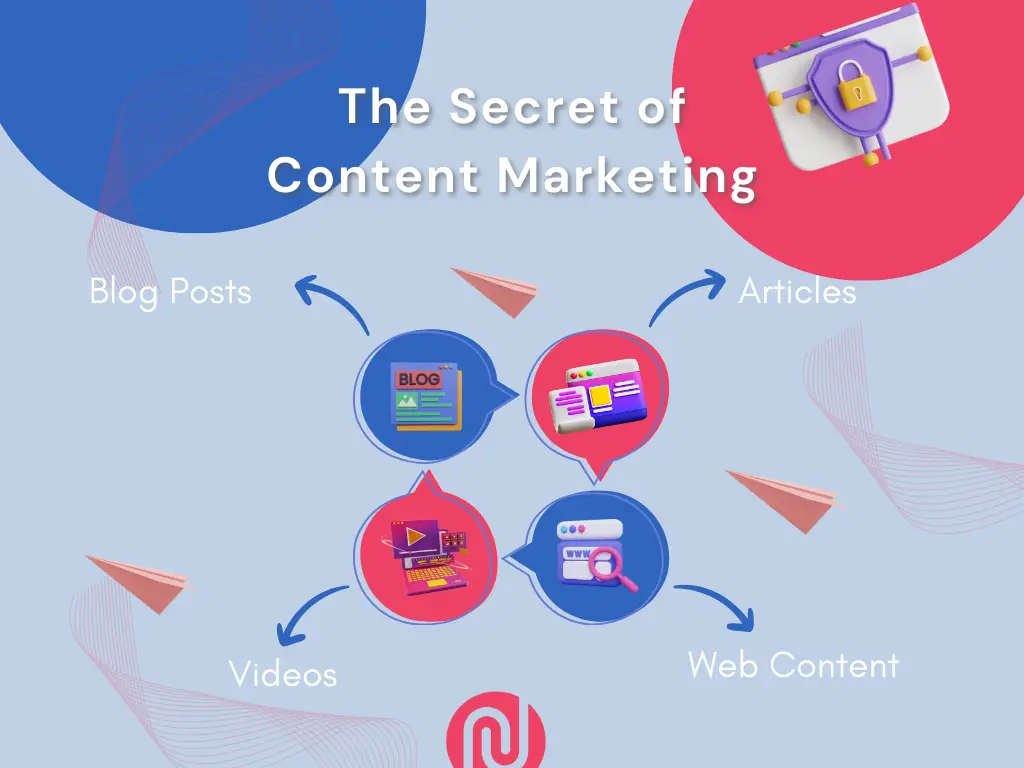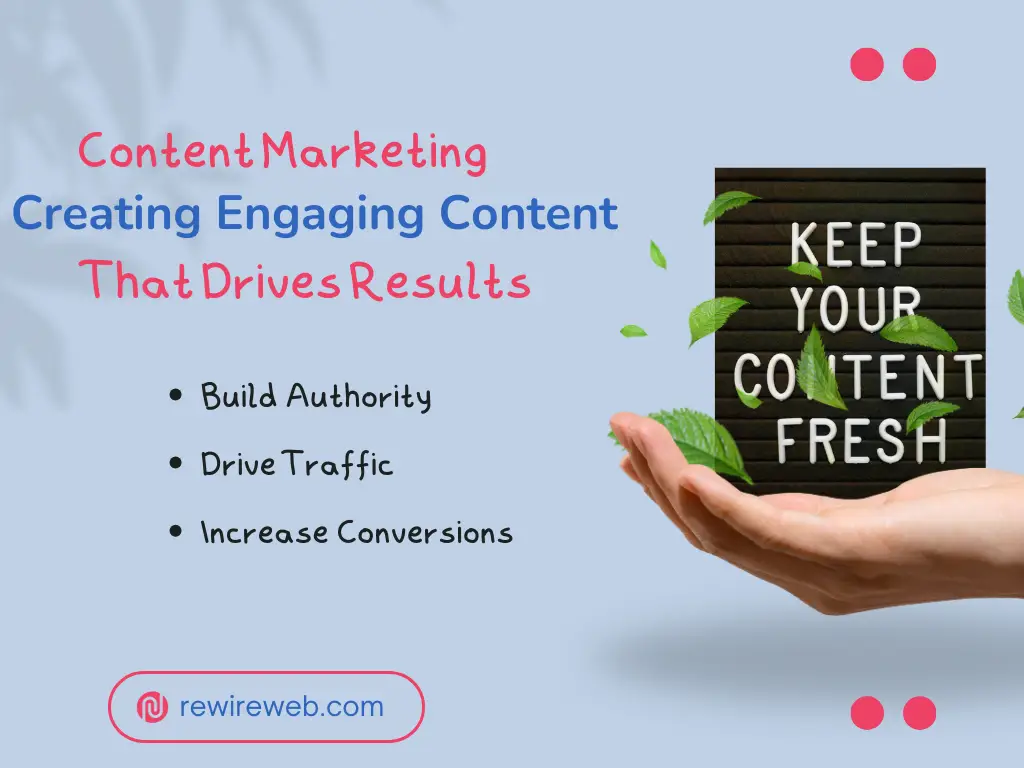Content marketing is not just an option but a necessity for businesses aiming to build their brand, engage their audience, and drive results. It has evolved beyond just creating content to a strategic approach that involves delivering valuable, relevant, and consistent information to attract and retain a clearly defined audience. Content marketing plays a crucial role in establishing authority, driving traffic, and ultimately converting leads into loyal customers.
The Role of Content Marketing in Today’s Digital Landscape
Content marketing is central to modern digital strategies, acting as the bridge between your brand and your target audience. It encompasses various forms of content, including blogs, videos, infographics, and podcasts, each designed to provide value to your audience while subtly guiding them toward a purchase or conversion. By consistently offering valuable content, businesses can position themselves as industry leaders, foster trust with their audience, and improve their online visibility.
How Content Marketing Helps in Building Authority and Driving Traffic
One of the primary benefits of content marketing is its ability to establish authority. When you provide valuable insights, solve problems, and answer questions through your content, you build credibility in your industry. This authority attracts more visitors to your site and encourages them to engage with your content, increasing traffic and fostering a deeper connection with your audience.
Types of Content Marketing
Content marketing isn’t a one-size-fits-all approach. Different types of content can be leveraged to reach your audience in various ways. Here’s an overview of popular content types:
- Blogs: Written content that can drive traffic through SEO and engage readers with valuable information.
- Videos: Visual content that can capture attention and explain complex topics in a digestible format.
- Infographics: Graphic representations of information that can simplify data and make it more engaging.
- Podcasts: Audio content that allows for on-the-go consumption and helps build a personal connection with listeners.
Content Strategy Development
Developing a robust content strategy is essential for maximizing the effectiveness of your content marketing efforts. Here’s a step-by-step guide to creating a strategy that aligns with your business goals and audience needs:
Steps to Develop a Content Strategy
- Audience Research: Understand your target audience’s needs, preferences, and pain points. Use tools like Google Analytics, social media insights, and surveys to gather data about your audience’s behavior and interests.
- Setting Goals: Define clear, measurable objectives for your content marketing efforts. Goals might include increasing website traffic, generating leads, boosting engagement, or building brand awareness.
- Choosing Formats: Based on your audience research and goals, decide on the types of content formats that will best serve your strategy. Whether it’s blog posts, videos, infographics, or podcasts, choose formats that resonate with your audience and align with your goals.
- Creating a Content Calendar: Plan your content distribution and ensure consistency in posting. A content calendar helps you organize and schedule content effectively. Here’s a useful guide to creating a content calendar.

SEO and Content Marketing
Search Engine Optimization (SEO) is crucial for maximizing the reach and impact of your content. It involves optimizing your content so that it ranks higher in search engine results, making it more visible to potential readers.
The Importance of SEO in Content Marketing
SEO helps improve your content’s visibility and drives organic traffic to your site. By aligning your content with search engine algorithms and user intent, you can attract more qualified leads and increase the likelihood of conversions.
Tips on Optimizing Content for Search Engines Without Compromising on Quality
- Keyword Research: Identify relevant keywords that your audience is searching for and incorporate them naturally into your content. Use tools like Ahrefs’ Keywords Explorer to find high-value keywords.
- On-Page SEO: Optimize your content’s title tags, meta descriptions, headers, and URL structures. Ensure that your content is easy to read and includes internal and external links.
- Content Quality: Focus on creating high-quality, valuable content that meets user intent. Avoid keyword stuffing and prioritize readability and user engagement.
- Visuals and Media: Use images, infographics, and videos to complement your text and make your content more engaging. Optimize these elements for search engines by using descriptive filenames and alt text.
Measuring Content Marketing Success
To ensure your content marketing efforts are effective, it’s important to measure and analyze performance. Tracking key metrics helps you understand what’s working and where improvements are needed.
Key Metrics to Track Content Performance
- Engagement Rates: Measure how well your audience interacts with your content. Metrics such as likes, comments, shares, and time spent on page can provide insights into engagement levels.
- Traffic: Monitor the amount of traffic your content generates. Tools like Google Analytics can help you track visitors, page views, and referral sources.
- Conversions: Track how many visitors take a desired action, such as signing up for a newsletter, filling out a contact form, or making a purchase. This helps evaluate the effectiveness of your content in driving conversions.
- Bounce Rate: Analyze the percentage of visitors who leave your site after viewing only one page. A high bounce rate may indicate that your content isn’t meeting user expectations.
Conclusion
A well-executed content marketing strategy offers numerous benefits, including building authority, driving traffic, and increasing conversions. By creating engaging and valuable content, optimizing it for search engines, and measuring its performance, you can effectively reach and connect with your target audience.
Assess your current content marketing efforts and consider how you can improve them to achieve better results. Whether it’s refining your content strategy, enhancing SEO, or exploring new content formats, continuous improvement is key to success.
Ready to take your content marketing to the next level? Evaluate your current strategy, make the necessary adjustments, and watch your results soar.

